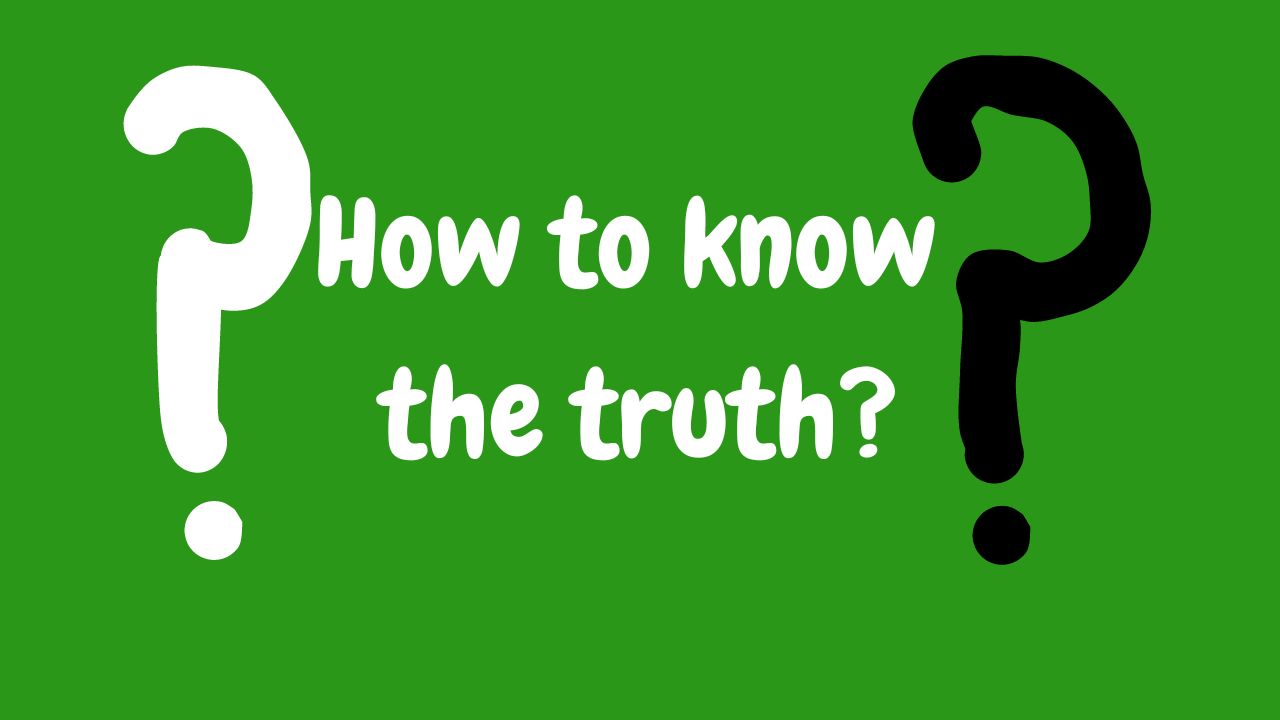
How to Know the Truth?#
Suppose I come to your home.
You offer me food, and I say,
“No, I won’t take it.”
You might think I’m hesitating.
You ask, “Have you eaten?”
I reply, “I have taken food.”
What options do you have then?
If you really want to feed me,
then you want to know the truth, have I really eaten?
If not, you can choose to believe me.
Suppose you investigate to know the truth.
You ask me questions:
When did I eat?
Where did I eat?
What did I eat?
Based on my answers, you might ask more questions.
Finally, after the conversation,
you may “conclude the truth.”
But what if I were deaf or mute?
In that case, your this method wouldn’t work.
You’d use other techniques to “conclude the truth.”
No matter what method you use,
After all your efforts, do you truly “know the truth,”
Or do you merely “conclude the truth”?
It depends on the seriousness of the investigation,
The resources and time available,
And what’s at stake if you miss the truth.
Everyone uses resources and time to seek truth.
But even then, it is difficult to know,
You rely on statements, circumstantial evidence,
the speaker’s intentions, etc.
You trust your intellect
to analyze all communications and evidences correctly.
If this is the struggle to know a simple worldly truth,
Then what struggle must we endure
to know the truth of our existence?
Consider this:
Who is your father?
You rely on your mother.
But if her statement raises doubt,
Your search expands in other directions.
Suppose you are serious
and want to know the truth about the following.
What happens before birth?
When do you enter your mother’s womb?
Is it when she becomes pregnant,
Or when your heart or brain forms weeks later?
If a baby has a fully developed heart and brain,
can we say life has begun,
And that the person is now complete within that body?
In the journey of your life,
From conception,
To having a fully functional heart and brain,
To playing in the cradle,
To going to school,
To getting married,
To having children,
To getting retired,
To death, when are you a complete life?
Don’t answer the Truth from your culture,
When they say,
you become complete after the marriage.
Other say you never become complete.
What happens after death?
Is there a God?
What happens if I do good karma—
Behave well,
Forgive bad actions of people,
Suffer for others’ happiness?
What if I do bad karma,
Live irresponsibly,
Annoy others for my own comfort and pleasure?
These are the big questions of life.
But we only ask them once
we are free from the immediate survival problems of life.
Even then, if we live a prosperous,
healthy life (as our birthday wishes imply),
Will we seek answers to these questions?
Most of humanity is busy with survival.
Their needs change and are rarely fully met,
So they don’t progress
to the next stage of asking serious questions.
For some, these questions don’t exist.
For others, they’re a waste of time
since we may never know the truth.
And for some, they lack the ability
to analyze and pursue the truth.
The easiest option is belief.
Go with your culture and accept
whatever your books and ancestors tell you.
They become believers or theist.
Another easy path is disbelief.
They think it’s the world’s responsibility
to prove the turth before them,
And until then, they won’t believe.
They become atheists.
Both are believers:
One believes in God, the soul, karma, rebirth, etc.
The other believes they don’t exist.
Neither knows the truth.
To know the truth,
You must pursue it on your own.
If you discover it, your life will change.
If you believe simply
because a Guru or Scripture says so, nothing will change.
Your seriousness in asking the question must be as serious.
When you ask if I’ve eaten,
But I say, “No,” and you believe me.
You feel satisfied—this is the atheist’s way.
If I say, “Yes,” and you feed me,
Believing I’m hungry,
It is theist’s way.
Whether you feed or not,
Whehter I eat or not,
The question remains,
“have I eaten” when the question was asked.
If it’s not a serious question,
Nor does the answer have deep implications.
Whatever the outcome, not much is at stake.
You have the resources to handle both situations.
O Chaitanya, But the questions of life
and their answers have deeper implications.
In fact, they shape how we live
and what kind of life we lead.
You may think if someone gives you the answer, that will help.
But that’s not how you come to know the truth of your own existence.
That is a “newspaperish” way of knowing the Self,
Talking about it without the experience.
Hashtags#
#TruthSeeking #PhilosophyOfLife #ExistentialQuestions #SelfDiscovery #SpiritualJourney #UnderstandingTruth #DeepThoughts


Comments: